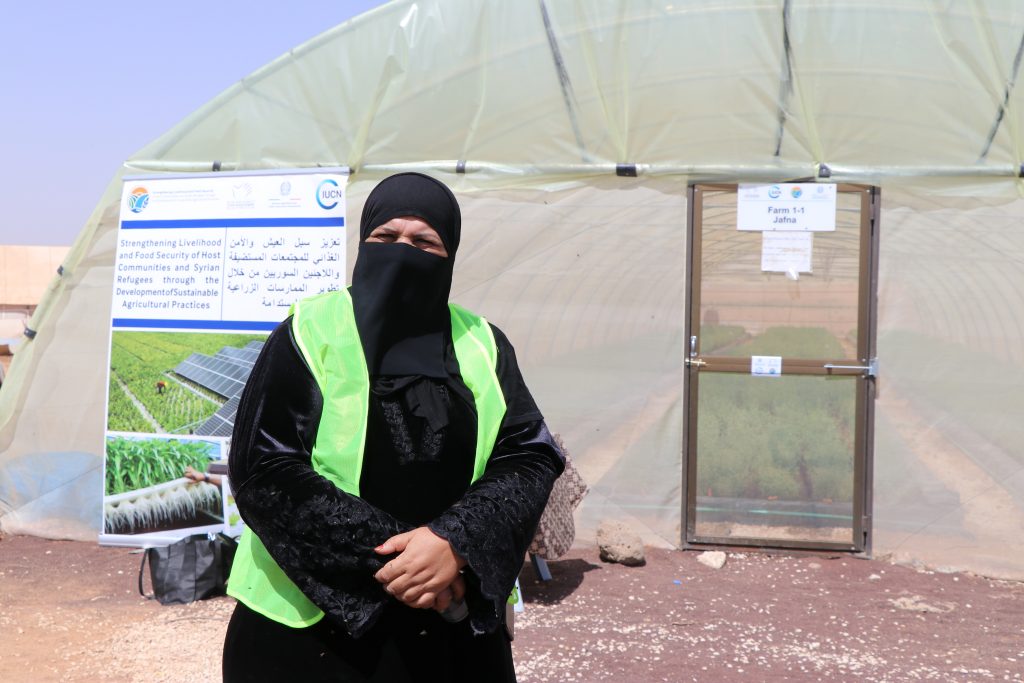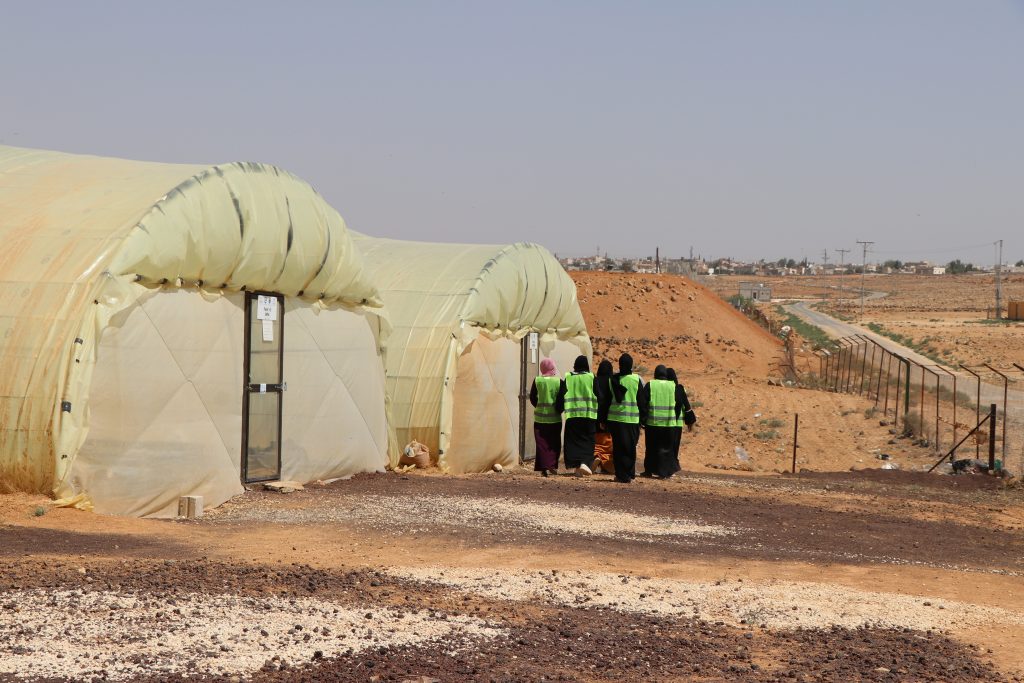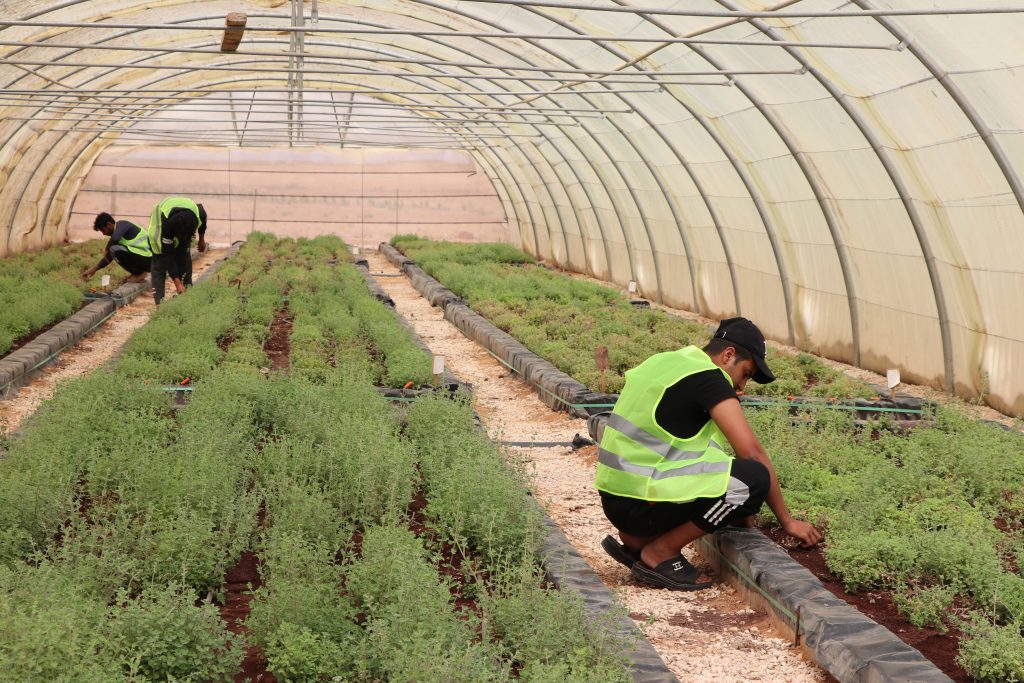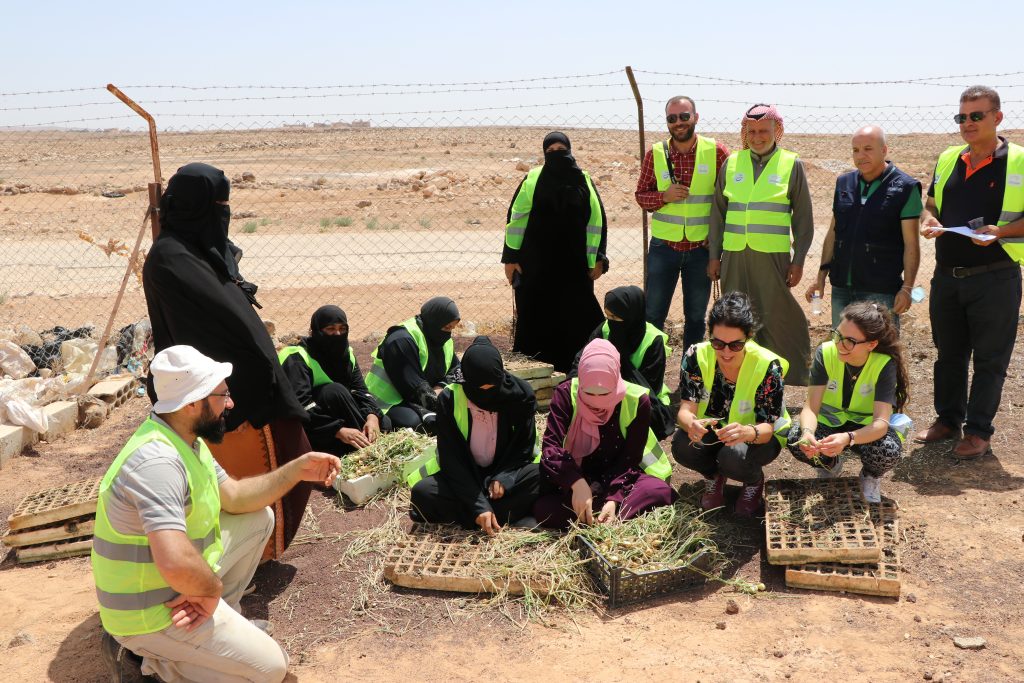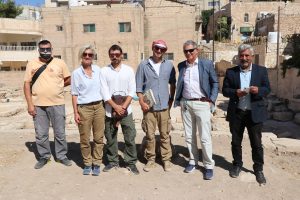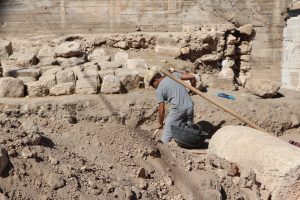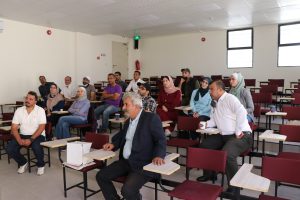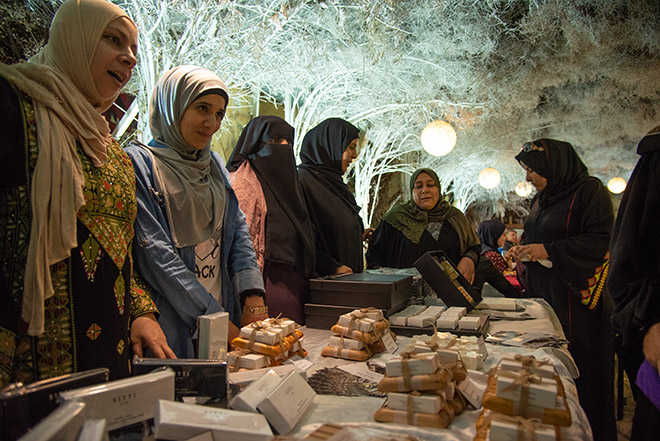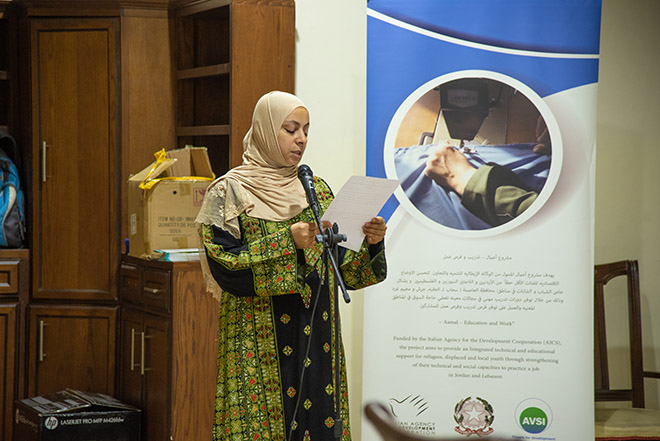June 2022 – In the north of Jordan, in a barren land a few kilometers from Syria, women and men residing in remote locations in the Governorates of Mafraq and Irbid are busy collecting the products grown in the long circular greenhouses that were installed, with the contribution of the Italian Cooperation, to support the agri-food sector in areas affected by water scarcity and particularly vulnerable to climatic and environmental stress.
Thyme, basil, onions, aromatic herbs, lettuce, local crops and other best-selling products of the local market. By combining traditional practices and methodologies with modern and innovative technologies and based on the Nexus Water-Energy-Safety approach, the International Union for Conservation of Nature (IUCN), partner of AICS for the realization of the initiative "Improving the living conditions and food security of host communities and Syrian refugees through the development of sustainable agricultural practices”, has focused on the diversification of agriculture and water supply and a more efficient and rational use of water, as well as the introduction and use of renewable energies.
Jordan is indeed one of the poorest water countries in the world. Water scarcity is recognized as one of the main obstacles to its socio-economic development and to the regular restoration of natural resources. The insufficient availability of water, both in terms of quantity and quality, clearly has a significant impact on agriculture, which accounts for 70% of the country's total water consumption, and on food security.
AICS and IUCN, in response to this need for conservation of natural resources and in collaboration with local Community Based Organizations (CBOs) selected as partners, have oriented their intervention on improving water efficiency in irrigation through the introduction of agronomic techniques based on low water consumption and the use of renewable energies, both in the production cycle and in the transformation of agricultural products. IUCN has set up 8 agricultural production sites in various locations in the target Governorates that use "smart" systems such as hydroponics and renewable energy systems, in addition to market analyses and specialized training aimed at farmers and breeders. Trainings focused on agriculture techniques that are based on a systematic approach that analyzes the interactions between the natural environment and human activities and is oriented towards a more coordinated management and use of natural resources.
60 years old Nadia Al-Faqeer, head of the Jafna Charity Association women's cooperative in Um Al-Qutayn, in the Governorate of Mafraq, works in the thyme production chain in one of the sites created through the contribution of the Italian Cooperation. The cooperative, selected by IUCN as a partner of the initiative, currently has 40 Jordanian women and, since its foundation in 2015, has supported the empowerment of local women through training and involvement in productive projects – such as the planting and processing of thyme. "The project helped generate income for my family and made me a more productive and effective member of the community" smiles Nadia next to her husband who supports her, she explains, in all her initiatives, "and the same goes for women who took part in the project".
Nadia has worked on setting up small businesses, such as food processing projects, and has facilitated fundraising and training courses for local women on agricultural practices, to enable them to support their families and strengthen their livelihoods. “I can testify that the impact of this project has been significant in creating job opportunities for the Jordanian and Syrian women involved. We produce the thyme and harvest it monthly, then sell it fresh, dried or processed, in local markets. We sell our products at festivals and bazaars such as the Olive tree festival, the Jameed festival, the Ghee festival and charity bazaars. We currently have no access to export markets, but we look forward to accessing any opportunities outside of Jordan as we are confident in our experience and the quality of our products. I am looking forward to expanding the cooperative's activities and job opportunities to involve an ever-growing group of collaborators, ”adds Nadia, showing the jars of thyme labeled and ready for sale.
The project already represents a successful business model: similar greenhouses have been installed by private individuals on the adjacent land, and we hope that such small-scale projects will be replicated further and ultimately contribute to increased income generation opportunities and enhanced resilience of a growing number of vulnerable women, men and families.
